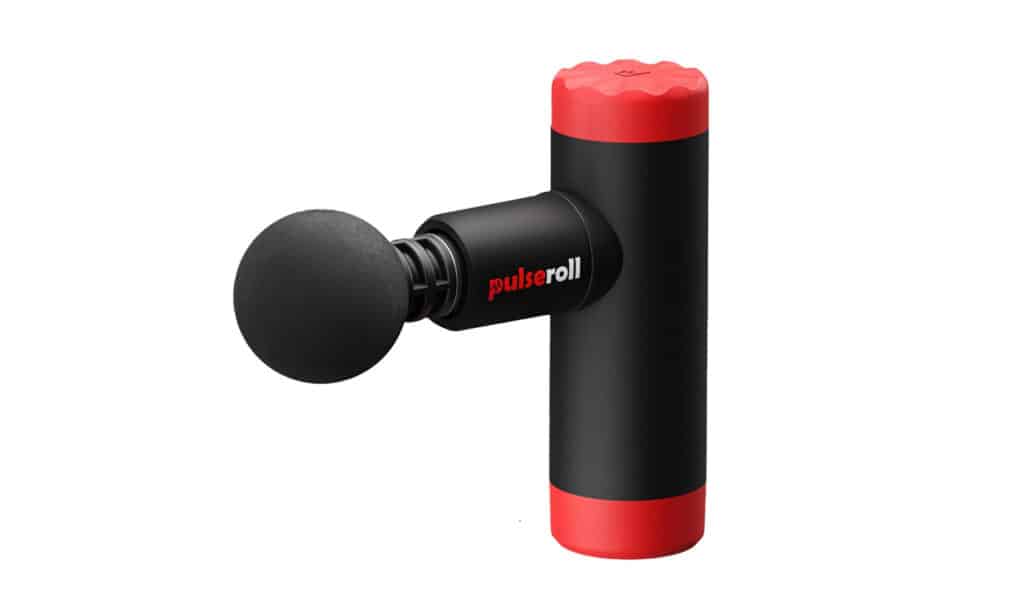


Marathon training is not just a path to enhanced fitness and stamina; it can also help aid in burning calories and weight loss. With planning and unwavering commitment, marathon training and running workouts can be an effective way to shed excess weight and achieve your fitness goals.
Considering running a marathon to achieve the physique of your dreams? If you’re ready to tackle 26.2 miles, this guide is tailored for you. Many individuals embark on marathon training as a means to lose weight.
However, running workouts alone aren’t a guarantee for weight loss. Understanding the intricacies of how to effectively combine weight loss with marathon training running workouts is crucial if you aim to cross the finish line sporting a leaner and more toned body.
Thankfully, mastering this balance is not as daunting as it might seem. This marathon training plan for weight loss offers practical advice and proven tips to help you simultaneously meet your weight management and marathon goals.

The short answer is yes – marathon training running workouts can be an effective way to lose weight. Following a running plan for weight loss burns a significant amount of calories and helps you lose body fat, particularly when combined with other healthy habits like proper nutrition and strength training.
According to studies, running for an hour can burn 500-700 calories, depending on factors such as age, weight, and intensity level. Over time, this calorie deficit can result in body weight loss. Incorporating running into your weight loss plan can certainly contribute to your overall success.
When starting marathon training, it’s important to start at a slow pace and ease into running gradually. Jumping right into high mileage to burn fat and intense running workouts can increase the risk of injury and burnout. Plus, beginners may not have built up enough endurance to handle longer distances without straining their bodies.
Instead, begin with walk/run intervals and gradually increase the distance of your running workouts as you build endurance. Aim for a slow and steady progression, increasing your mileage by no more than 10% each week. This will not only help prevent injuries but also allow your body to adapt to the increased demands of marathon training and improve your running performance.
You may find it helpful to download our Coach the Run Couch 5k to Marathon 24 week plan, to give you a structured progressive running plan to follow.

The number of calories burned while running depends on several factors, including body weight, pace, and distance covered. To get a more accurate estimate, you can use online calculators or fitness trackers that take these factors into account.
For example, a person weighing 150 pounds can expect to burn fat with approximately 300-400 calories during a 30-minute jog at a moderate pace. As the distance and intensity increase, so does the number of calories burned.
To make running even more effective in losing weight and burning fat, consider incorporating interval training or hill runs into your routine. These high-intensity workouts can help maximise calorie burn and improve overall fitness.
The secret to losing weight while training for a marathon is to burn calories and achieve a calorie deficit. Theoretically, if you burn more calories than you consume, you will lose weight. So if you burn 3,500 calories and consume 3,000 calories daily, you create a daily shortfall of 500 calories. This leads to a weekly deficit of 3,500 calories, roughly equal to the 3,600 calories required to shed one pound, potentially resulting in you being able to lose weight of 10-15 pounds over time.
However, this model doesn’t perfectly mirror reality. Consuming fewer calories and exercising more prompts your body to enter energy-saving mode, a common challenge for lean runners striving for their ideal “racing weight.” Regrettably, the ability to lose weight is not as simple and predictable as it may seem.
A better strategy involves being able to lose weight and burn fat by eliminating 300 to 500 calories from your evening meal. Ensuring proper nutrition before, during, and after long runs is essential to maintain enough energy for both training and recovery. By scaling down your dinner or nighttime snacks, you can burn calories overnight without sacrificing the energy required for your training regimen.
Additionally, seeking guidance from a registered dietitian can provide personalised recommendations and guidance that support you to lose weight and ensure you maintain the energy levels required for rigorous training.

Completing a marathon stands as a remarkable feat, with the journey of training for it being equally commendable. Even seasoned runners acknowledge the rigorous demands of such preparation.
The challenge intensifies when aiming to lose weight in the lead-up to the marathon. Running burns calories and mastering this aspect isn’t as daunting as it may seem. A number of proven strategies exist that can guide you towards meeting both your weight and marathon objectives simultaneously. These tips not only prepare you for the physical demands of a marathon but also pave the way for a successful weight loss journey.
Long runs are an aerobic exercise and an inherent part of marathon training, and they also play a significant role in running for weight loss. As you gradually increase your distance, you’ll burn more calories and improve your endurance. However, maintaining a steady pace during these long runs is critical.
Pushing too hard can lead to fatigue and potential injuries, while taking it too easy may not provide enough calorie-burning benefits. Finding your ideal pace for long runs is essential, and it may take some trial and error to determine what works best for you.
Running daily can quickly deplete both your physical and mental energy. It’s beneficial to dedicate a few days each week to strength training. Strength training that engages in bodyweight exercises or lifting weights not only helps in reducing the risk of running-related injuries but also is less likely to increase your appetite compared to running.
Most crucially, strength training develops muscle, which in turn enhances your calorie burn even when at rest. Integrating regular strength training into your marathon regimen can significantly amplify your weight loss efforts. Strength training allows you to build lean muscle mass and boosts your metabolism, enabling you to burn more calories while inactive.
For marathon trainees committed to weight loss, incorporating intense workouts such as interval training and High-Intensity Interval Training (HIIT) into your regimen is beneficial. These methods elevate the efficiency of your workouts by optimising the intensity of each session, allowing you to burn more calories.
Interval training alternates between phases of lower and higher-intensity exercises, enabling sustained training without overwhelming fatigue. HIIT, a more defined form of interval training, consists of short, intense activity bursts—often under a minute – followed by brief recovery periods. Both techniques are invaluable for burning more calories, playing a pivotal role in marathon preparation. Incorporating this dynamic training into your marathon regimen can significantly aid in weight management.
Fueling your body with a healthy diet and the right nutrients is essential for both marathon training and weight loss. Focus on incorporating nutrient-dense foods such as lean proteins, whole grains, fruits, and vegetables into your diet. These will provide you with the energy needed to fuel your runs while also supporting healthy weight loss.
It’s also important to pay attention to your body’s hunger and fullness cues and avoid overeating or restricting calories too much. Finding a balance between fuelling properly for training and creating a caloric deficit for weight loss can be challenging, so seeking guidance from a registered dietitian may be helpful.
Meal prepping is a crucial strategy when training for a marathon. By preparing your meals in advance, you eliminate the temptation to fall back on quick snacks or fast food. Simply reheat your pre-prepared meal, and you’re ready to go. This practice ensures you receive the essential nutrients and vitamins your body demands during this rigorous training phase, allowing for precise control over your daily intake and overall consumption.
One of the standout benefits of meal prepping is its suitability for bulk preparation. You can cook meals for extended periods and store them in individual containers, ensuring you eat on time and avoid unhealthy food cravings by having nutritious portions always at hand.
Dedicate time each week to plan and prepare your meals, ensuring you always have healthy choices available. Moreover, incorporating snacks designed to provide energy and aid recovery, such as protein bars or shakes, is essential for supporting your training needs.
In essence, meal prepping not only streamlines your nutrition during marathon training but also enhances the quality of your dietary intake, making it a valuable practice for athletes committed to achieving their best performance.
As you progress through your marathon training and weight loss journey, it’s essential to celebrate your achievements. However, instead of turning to food as a reward, choose healthy alternatives such as treating yourself to new workout gear or scheduling a massage.
This not only helps prevent derailing your progress but also reinforces the importance of self-care and finding non-food ways to acknowledge and appreciate your hard work and dedication.
You might believe that to stay hydrated, lose weight, and optimise your performance for marathon training, you should only drink water or other low-calorie beverages. However, this isn’t entirely accurate. Drinking wisely involves knowing when and what types of beverages can bolster your performance and help manage your weight.
Selecting the right types of drinks and knowing when and how to consume them will keep you on track. While hydration is essential for athletes, it’s equally important to be mindful of the calorie content in beverages. Sports drinks and smoothies, for instance, can be calorie-laden and high in sugar, potentially impeding weight loss.
Choosing water or low-calorie alternatives like unsweetened tea or coffee can ensure you stay hydrated without the added calories. Consider diluting sports drinks with water to cut down on sugar and calories, maintaining a balance that supports your training and health goals.
When training for a marathon, enhancing your diet with essential vitamins and minerals becomes crucial. These key nutrients are instrumental in sustaining a healthy metabolism and can aid in reducing cravings for unhealthy snacks, thus preventing overeating. If you find it challenging to meet your daily nutritional needs, it’s advisable to consult a doctor for personalised recommendations on vitamin and mineral supplements.
Incorporating these supplements into your nutritional plan is vital to prevent deficiencies that could hinder your training progress. It’s especially important to ensure your body receives all the necessary nutrients when preparing for a marathon and pursuing weight loss goals. Sometimes, this involves integrating targeted supplements into your diet.
For specific advice on addressing nutrient deficiencies and selecting the most beneficial supplements for your unique needs, consulting with a healthcare professional or a registered dietitian is recommended. Proper supplementation can significantly boost immune function, increase energy levels, and improve overall health, thereby supporting your marathon training and weight loss objectives.
Losing weight during marathon training might seem like an insurmountable challenge, but with the right strategies, it’s entirely achievable. By adhering to the advice and steps outlined in this article, you’re positioning yourself for triumph, allowing you to meet your weight loss objectives without compromising your training regimen.
Maintain discipline in your meal planning and preparation, prioritise adequate rest and recovery, and avoid experimenting with new foods or supplements that could disrupt your digestive system. Have faith in running for weight loss and the dietary plans you’ve implemented, and keep your eyes on the prize.
In conclusion, marathon training and running for weight loss can go hand in hand with the right approach. By incorporating long runs, strength training, interval training, proper nutrition, and healthy habits such as meal prep and rewards into your routine, you can achieve both goals simultaneously.
Remember to listen to your body and seek guidance from professionals when needed. With dedication and consistency, you can successfully complete a marathon and reach your weight loss goals.
So, get started today by downloading a running plan such as our 24-week Coach the Run Couch to 5k to marathon training plan.
Ready for a speedy marathon challenge? Take a read of our 4 hour pace marathon blog.
Lace-up those running shoes and start your running for a weight loss journey today!
Share this article
Running is a popular form of exercise that has numerous physical and mental health benefits....
Running is a popular form of exercise that can help you lose weight and improve...
As race director for the Basingstoke Half Marathon and 10km – https://www.destinationbasingstoke.co.uk/half-marathon/ – Mike Gratton has put...
When it comes to running marathons, injury prevention is essential for any runner. Not only...
As a runner, you may have experienced those days when your legs feel tired and...
Kettlebells, a popular type of weight training equipment originating from Russia, consist of a cast...
We’re here to make sure you’re up-to-date with the latest running tips, events and product discounts – we’ve always got your back! Rest assured, we value your privacy and would never dream of selling your address.
BONUS: Sign up today and receive a FREE code for our Sub-4-Hour Marathon Plan
Your privacy settings
Manage Consent Preferences
Necessary
Analytics
Embedded Videos
Marketing
Facebook Advanced Matching
Facebook CAPI